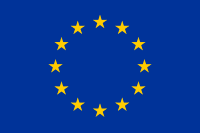EU Study: Economic Impact and Travel Patterns of Accessible Tourism in Europe
Share on social media
This 12-month research study, which started in January 2013, will examine the demand for and economic impact of accessible tourism in Europe.
 The research study, which started in January 2013, will examine the demand for and economic impact of accessible tourism in Europe.
The research study, which started in January 2013, will examine the demand for and economic impact of accessible tourism in Europe.
Findings from the study will be used to suggest ways on how to improve Europe’s tourism sector competitiveness and the attractiveness of its destinations.
The European Commission, which has commissioned the study, writes:
"The overall purpose of the contract is to collect comprehensive and EU-wide data on:
- the economic impact - both actual and potential - of travellers with special access needs on the EU tourism sector;
- the demand, travel behaviour, and patterns of travellers with special access needs in Europe.
Travelling for pleasure (or for business) in Europe is equally relevant for persons with physical disabilities, but the barriers they have to face are far greater.
"Tourism accessibility" across Europe is still to some extent "unchartered territory", with widespread misconceptions and lack of knowledge about the market of tourists with special access needs.
Visitors' requirements are largely unknown, investment costs are often misunderstood or exaggerated and "accessibility" is generally perceived by business as a "burden".
Travelling and having full access to tourist activities, services and facilities is a right enshrined in Article 9 of the UN Convention on the Rights of People with Disabilities, signed by the European Union and its 27 Member States.
Furthermore, making tourism facilities more accessible to people with disabilities, is also a "golden opportunity" for businesses".
Partners
- Significant GfK, Belgium
- University of Surrey, United Kingdom
- Pro-A Solutions, Spain
- Neumann Consult, Germany
Budget: € 250,000. Financed under the EU Preparatory Action on Tourism and Accessibility for All, funded by the European Parliament and managed by the European Commission DG Enterprise and Industry, Unit E2 - Tourism and Cultural Instruments.
Duration: 12 months
Further information
To contact the researchers, visit the University of Surrey's online News page
Read the research tender specifications at the European Commission website
 NeumannConsult is an Associate Member of ENAT
NeumannConsult is an Associate Member of ENAT
